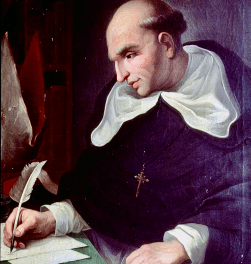We support our Publishers and Content Creators. You can view this story on their website by CLICKING HERE.
Kinship among nations is not determined in such measurements as proximity, size, and age. Rather, we should turn to those inner things, those intangibles that are the real treasures free men possess. To preserve his freedom of worship, his equality before the law, his liberty to speak and act as he sees fit, subject only to the provision that he trespass not upon similar rights of others, the Londoner will fight. So will a citizen of Abilene.
London, England, June 12, 1945
The high sense of distinction that I feel in the great honor conferred upon me this morning by the city of London is inescapably mingled with feelings of the most profound sadness. All of us must always regret that your great country and mine were ever faced with the tragic situation that compelled the appointment of an Allied Commander in Chief, the capacity in which I have just been so extravagantly commended this morning.
Humility must always be the portion of any man who receives acclaim earned in the blood of his followers and in the sacrifices of his friends. Conceivably, a commander may have been professionally superior. He may have given everything of his heart and mind to meet the spiritual and physical needs of his comrades. He may have written a chapter in military history that will glow forever brightly.
Even such a man—if he existed—would sadly face the fact that his honors cannot hide in his memories the crosses that mark the resting places of the dead. They cannot soothe the anguish of the widow and the orphan, whose husband or whose father will not return.
Yet this feeling of humility cannot erase, of course, my tremendous pride in being tendered the freedom of London. I am not a native of this land. I come from the very heart of America. By all those superficial aspects by which we ordinarily recognize family relationships, the city where I was born and the town where I was reared are far separated from this great city. Abilene, Kansas, and Denison, Texas, would together add in size, possibly, to one five-hundredth part of your great city. By your standards they are young, without your aged traditions that carry the roots of London back into the hazy uncertainties of unrecorded history. To those people, I am proud to belong. But I find myself today five thousand miles from my countryside, the honored guest of a city whose very name is symbolical for grandeur and size throughout the world. Hardly what it has seemed possible for the London Council to have gone farther afield to honor a man with its priceless gift of token citizenship.
Yet kinship among nations is not determined in such measurements as proximity, size, and age. Rather, we should turn to those inner things. Call them what you will, but I mean those intangibles that are the real treasures free men possess. To preserve his freedom of worship, his equality before the law, his liberty to speak and act as he sees fit, subject only to the provision that he trespass not upon similar rights of others, the Londoner will fight. So will a citizen of Abilene.
When we consider these things, then the valley of the Thames draws closer to the farms of Kansas and to the plains of Texas. To my mind it is clear that when two peoples will face the tragedies of war to defend the same treasured rights, the same spiritual concepts, then in the truest sense of the word, those two peoples are truly related. So even as I proclaim my undying Americanism, I am bold enough, and exceedingly proud to claim, the basic kinship with you of London.
And what man who has followed the history of this war could fail to experience inspiration from the example of this city? When the British Empire stood—alone but unconquered, almost naked but unafraid—to defy the Hitler hordes, it was on this devoted city that the first terroristic blows were launched. Almost five years and eight months of war, much of it on the virtual battle-line, blitzes big and little, fly bombs, V-bombs—all of them you took in your stride. You worked. From your needed efforts you would not be deterred. You carried on, and from your midst arose no cry for mercy, no wailed defeat. The battle of Britain will take its place among your other deathless traditions. And at last, your patience, your courage, your endurance, your faith has been fully rewarded.
You had been two years in war when Americans in numbers began swarming into your island. Many of us were mentally unprepared for the realities of war—particularly as waged by the Nazis. Others believed that the tales of British sacrifice had been exaggerated. Still others failed to recognize the seriousness of the tasks ahead. All such questions, doubts, and complacencies could not endure one single casual tour through your scarred streets and avenues. Our men gazed with awe upon empty spaces where once great buildings had stood, erected by the toil and sweat of peaceful folk. Our eyes rounded as we saw your devoted women, engaged in every conceivable kind of war effort, even in flak batteries. We grew closer to you in spirit; we formed a true partnership for the waging of war.
In London, my associates and I planned two great expeditions—one to invade the Mediterranean, and later that to cross the Channel. London’s hospitality to Americans, her good-humored acceptance of the added inconveniences we brought, her quiet, calm confidence in the final outcome—all these did much to make the Supreme Headquarters of two expeditions the smooth-working organisms they quickly became. Those headquarters were composed of representatives of two proud and independent peoples, each noted for its efficiency and each completely satisfied with its own customs, manners, and methods. Many there were who feared that such representatives could never combine together efficiently for the meeting of the complex problems that modern war presents.
I hope you believe we proved the doubters wrong. Moreover, I hold that we proved this point not only for war—we proved that this can always be done by our two peoples, provided only that we show the same forbearance, the same goodwill, the same objective attitude that British and Americans so amply demonstrated throughout three years of bitter campaigning. No one man could alone have brought about this result. Had I possessed the military skill of Marlborough, the wisdom of Solomon, the understanding of Lincoln, I still would have been helpless without the loyalty, the vision, the generosity of thousands upon thousands of British and Americans. Some of these were my companions in the High Command. Countless others were the enlisted men and the junior officers that bore the fierce brunt of the fight. Still others were back in the United States, and here in Great Britain, in London. Back of us, all the time, were our two great national war leaders and their civil associates and military staffs that supported, encouraged, and backed us up in every trial, every test. We were one great team. I am sure that the three million Americans serving in the Allied Expeditionary Forces on this special occasion would want me to pay their tributes of admiration, respect, and affection for their British comrades of this war.
My most cherished hope is that after Japan has joined the Nazis in utter defeat, neither your country nor mine will ever again have to summon its sons and daughters from their peaceful pursuits to march to the drums of Mars. But—an important fact for both of us to remember—neither London nor Abilene, sisters under the skin, will sell her birthright for physical safety, she won’t sell her liberty for mere existence. No petty differences in the worlds of trade, national traditions, and pride should ever blind us to these identities in spiritual, priceless values. If we keep our eyes on this guidepost, then never can there be encountered a difficulty in our road of mutual co-operation that will be insurmountable. Moreover, when this truth has permeated to the remotest hamlet and heart of all peoples, then indeed may we beat our swords into plowshares, and all nations may enjoy the fruitfulness of the earth.
My Lord Mayor, I thank you once again for an honor to me and to the American forces that will always live with me as one of the proudest in my memories.
This essay was first published here in January 2020.
The Imaginative Conservative applies the principle of appreciation to the discussion of culture and politics—we approach dialogue with magnanimity rather than with mere civility. Will you help us remain a refreshing oasis in the increasingly contentious arena of modern discourse? Please consider donating now.
The featured image is a photo of the Meeting of the Supreme Command, courtesy of Wikimedia Commons. Left to right: Lieutenant General Omar Bradley, Commander in Chief, 12th US Army Group; Admiral Sir Bertram H Ramsay, Allied Naval Commander in Chief, Expeditionary Force; Air Chief Marshal Sir Arthur W Tedder, Deputy Supreme Commander, Expeditionary Force; General Dwight D Eisenhower, Supreme Commander, Expeditionary Force; General Sir Bernard Montgomery, Commander in Chief 21st Army Group; Air Chief Marshal Sir Trafford Leigh-Mallory, Allied Air Commander, Expeditionary Force; and Lieutenant General Walter Bedell Smith, Chief of Staff to General Eisenhower. This work created by the United Kingdom Government is in the public domain.

 Conservative
Conservative  Search
Search Trending
Trending Current News
Current News 





